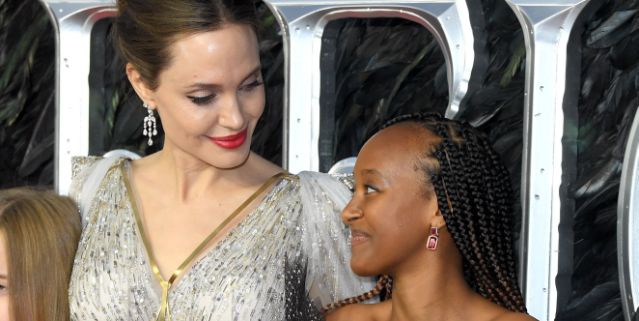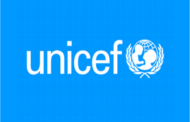Elena Sheppard, Yahoo! News
As part of Friday’s TIME 100 Talks series, actress Angelina Jolie interviewed Ugandan climate activist Vanessa Nakate. In their conversation about 23-year-old Nakate’s work — a months-long solo protest outside the gates of Parliament in Kampala and her Rise Up Movement that works to put African voices at the forefront of climate conversations — Jolie shared a little bit about her own life as well.
“My daughter is from Ethiopia, one of my children,” Jolie, 45, said of Zahara, 15. “And I have learned so much from her, she is my family, but she is an extraordinary African woman and her connection to her country, her continent, is her own and it’s something I only stand back in awe of.”
Zahara was adopted by Jolie in 2005, from an orphanage in the Ethiopian capital Addis Ababa. In addition to Zahara, Jolie shares Maddox, 18, Pax, 16, Shiloh, 13 and twins Vivienne and Knox, 11, with her ex Brad Pitt from whom she filed for divorce in 2016.

During the conversation, Nakate told Jolie that racial equality was a necessity in order for climate change to be properly addressed.
“In January, I happened to be cropped out of a photo with other climate activists,” Nakate said. “And to me, that was a form of racism and it felt like I had been robbed of my space.”
The photo Nakara referenced was taken at the World Economic Conference in Davos, Switzerland, and in the original image she appeared with white climate activists Greta Thunberg, Isabelle Axelsson, Luisa Neubauer and Loukina Tille. However, the image circulated by the Associated Press showed Nakate cropped out. “You didn’t just erase a photo. You erased a continent,” Nakate responded on Twitter. “But I am stronger than ever.” The Associated Press later apologized for the “error in judgment.”
Nakate also told Jolie, “If we don’t address the issue of racial justice, we won’t be able to get climate justice. So every climate activist should be advocating for racial justice because if your climate justice does not involve the most affected communities, then it is not justice at all.”
Jolie, who doesn’t often speak to the media about her children, shared her perspective with Harper’s Bazaar on raising a Black child among racism and discrimination in America. “A system that protects me but might not protect my daughter – or any other man, woman or child in our country based on skin color – is intolerable,” she told the magazine in June. “We need to progress beyond sympathy and good intentions to laws and policies that actually address structural racism and impunity. Ending abuses in policing is just the start. It goes far beyond that, to all aspects of society, from our education system to our politics.”












